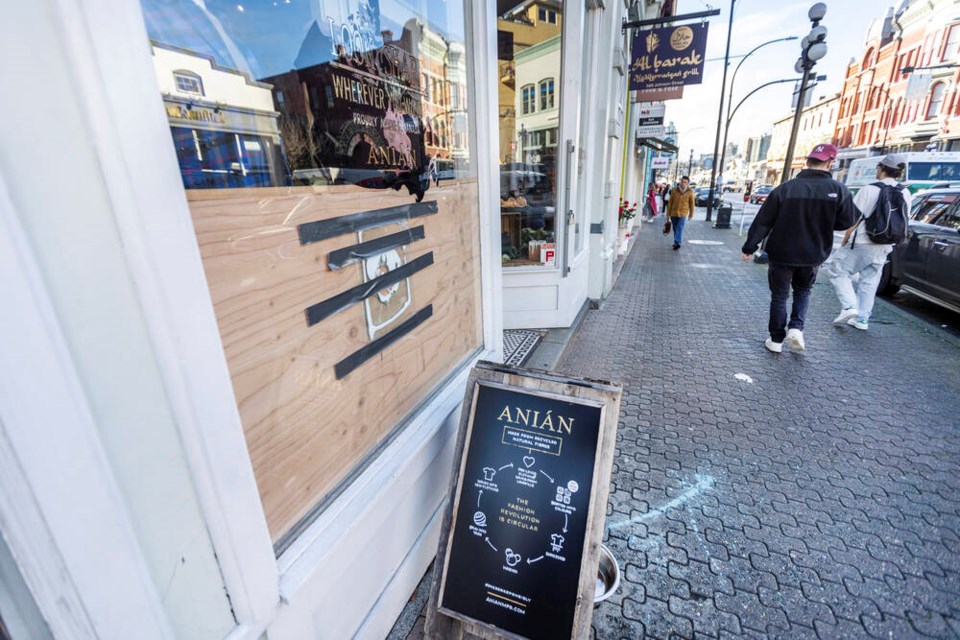All 13 of Canada’s provincial and territorial premiers have written to Prime Minister Justin Trudeau, deploring the spread of random acts of violence and calling for tougher bail standards.
Of particular concern to the premiers are lax bail conditions for individuals charged with firearms offences. Several police officers across Canada have been shot by accused individuals out on bail.
However, gun-related violence is only part of the picture.
In 2019, the federal government passed legislation that relaxed bail provisions across a wide field of criminal behaviour. This was done to reflect an earlier Supreme Court decision that called for a “principle of restraint” in setting bail conditions.
The court ruled that “restraint” in this context meant that detainees should be released at the “earliest reasonable opportunity” and with “the least onerous conditions” applicable to the case.
The decision reflected a trend in judicial thinking some years in the making. The purpose was to emphasize the need for more humane treatment of offenders, many of whom struggle with mental-health issues or addiction.
Yet while this change in direction was made with the best of intentions, there was always the risk that carried too far, it might result in “catch and release” policies. And, indeed, we are seeing instances now where even repeat offenders with extensive criminal records are released with minimal oversight.
In part, at least, this may account for the recent epidemic of vandalism in cities across the province.
In Victoria two weeks ago, six businesses had their windows smashed in a single night, and this was merely the most in a night in a spree of such behaviour.
Several store owners are speculating whether it’s worth paying this price to remain in business downtown.
Meanwhile, Victoria police have warned about a rash of incidents in which gangs of youths have assaulted passersby, attacked elderly and unhoused people, and, on one occasion, swarmed a police officer.
One in five British Columbians say they’ve been victims of crime in the past two years, the highest rate in the country next to Alberta.
And nationwide, one in four Canadians in urban areas say their neighbourhood is not safe to walk in after dark.
It’s difficult to know exactly what to make of those statistics. Overall rates of violent crime have declined during the past 25 years, though with a measurable uptick since 2020.
Yet this misses the central cause for concern. The sheer randomness, indeed gratuitous nature of the vandalism and violence we are seeing speaks to a mindset of rising social disengagement.
It feels as if the restraints of conscience or community disapproval have somehow been weakened.
And in one sense they have. By softening bail conditions for repeat offenders, or eliminating them altogether, our courts have defined downwards the standard of minimally acceptable behaviour.
What can be done?
Nationwide today, only one-third of Canadians have confidence in our criminal courts. In B.C., that number falls to 24 per cent, the lowest in the country.
The judiciary should listen to that message.
But, just as important, Crown prosecutors need to rethink their duties. Bail terms are set jointly by judges and prosecutors. If the latter seek only minimal constraints, most courts will go along.
B.C.’s Crown Prosecution Service has traditionally regarded itself as above and beyond the realm of politics.
In his previous position as attorney general, Premier David Eby tolerated this policy of insulation. But that appears to have changed.
The province’s recent throne speech contained this shot across the bow: “The B.C. Prosecution Service has been directed to strengthen their bail policy.”
Let’s hope that message is heard throughout the criminal justice system. Broken windows symbolize more than petty vandalism.
They speak to a breakdown in community values.
>>> To comment on this article, write a letter to the editor: [email protected]



